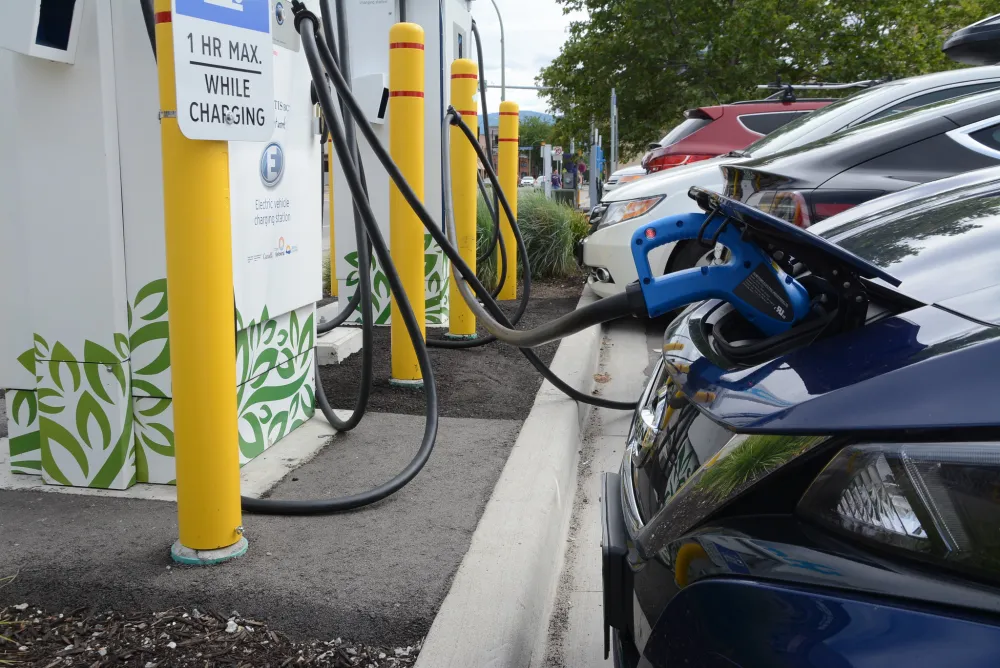TORONTO, ON — Adam Thorn, Director of Transportation Policy, Pembina Institute, made the following statement in response to California’s decision to approve a zero-emission regulation.
“The Pembina Institute applauds California’s decision last week to require that 100% of new light-duty vehicle (LDVs) sales be zero-emission by 2035. A sales mandate is the most effective mechanism governments can put into place to encourage automakers to increase EV supply. Without one, electric vehicles built in Ontario and other provinces end up going to out-of-province markets where a sales mandate is in place.
“Passenger electric cars, trucks and SUVs are increasingly reliable and widely available for purchase in Canada. They are also an important climate solution—transportation is the second highest generator of greenhouse gases in Canada, second only to oil production. In addition to helping mitigate climate change, they offer other environmental and health benefits by improving air quality and reducing dangerous pollutants in cities.
“We are at a tipping point. With the passage of the Inflation Reduction Act andthe U.S.’s largest state requiring more and more cars to be zero-emission, the shift of car manufacturers to a 100% supply of ZEVs across North Americais not a matter of if, but when. Indeed, Washington and Massachusetts are following suit by adopting California’s regulations.
“In addition to a sales mandate, we recommend that supports be offered to manufacturers to help them switch facilities to be EV-ready and to secure the supply chains to generate the materials required. As well, utilities must be involved to ensure that the necessary clean electricity is available to support millions of electric vehicles.
“The Pembina Institute urges the federal government to make good on the promises of the Emissions Reductions Plan and institute the promised sales mandate for light-duty vehicles.”
Quick facts
- California’s regulation will require automakers to deliver an increasing number of zero-emission light-duty vehicles each year: 35% in model year 2026; 68% in 2030, and 100% in 2035.
- Battery-electric and hydrogen fuel cell vehicles qualify as ZEV vehicles under California’s regulation.
- British Columbia and Quebec are the only provinces in Canada that have zero-emission light-duty vehicle sales mandates, both mandating that all new light-duty vehicle sales are 100% zero-emission by 2035.
- Zero-emission vehicles were 8.3% of new vehicle registrations in Canada in Q1 of 2022. Across provinces, British Columbia and Quebec lead – zero-emission vehicles made up 17% of new vehicle registrations in British Columbia in Q1 in 2022, and 13.6% in Quebec.
- Automakers send their ZEVs where sales requirements are in place. For example, there are 37 ZEVs available for purchase per 100,000 people in Quebec, where there is a sales mandate, compared to 9 in Ontario, where no sales mandate exists.
Contact
Kendall Anderson
Senior Communications Lead, Communities and Decarbonization
Pembina Institute
416-220-8804




